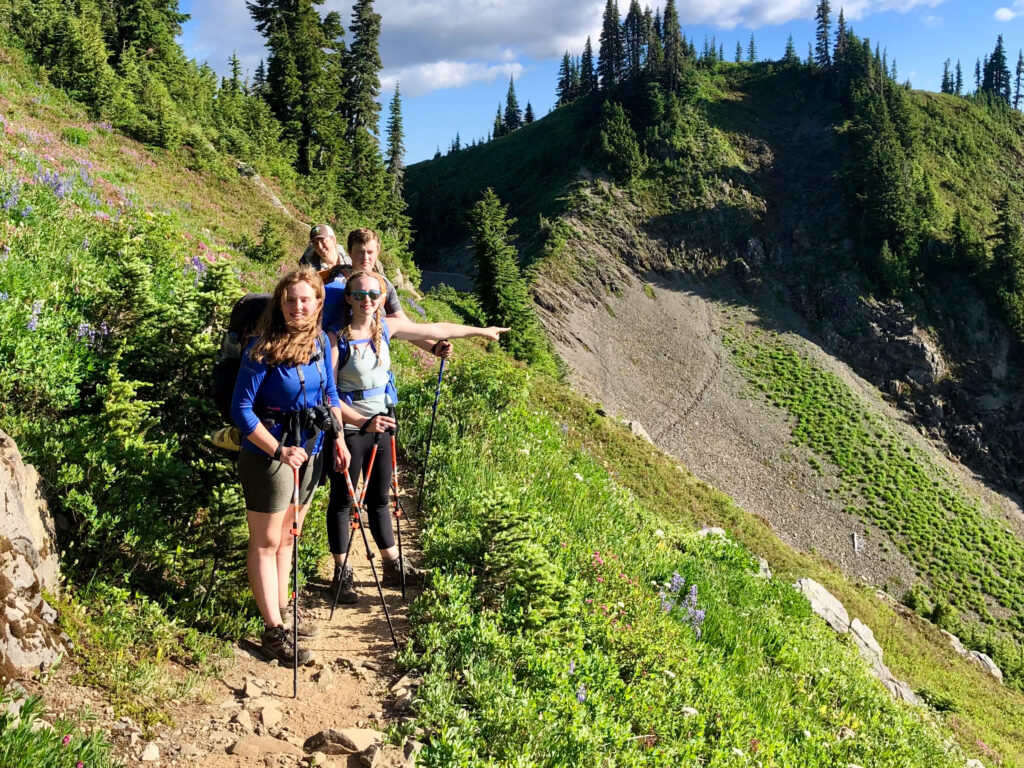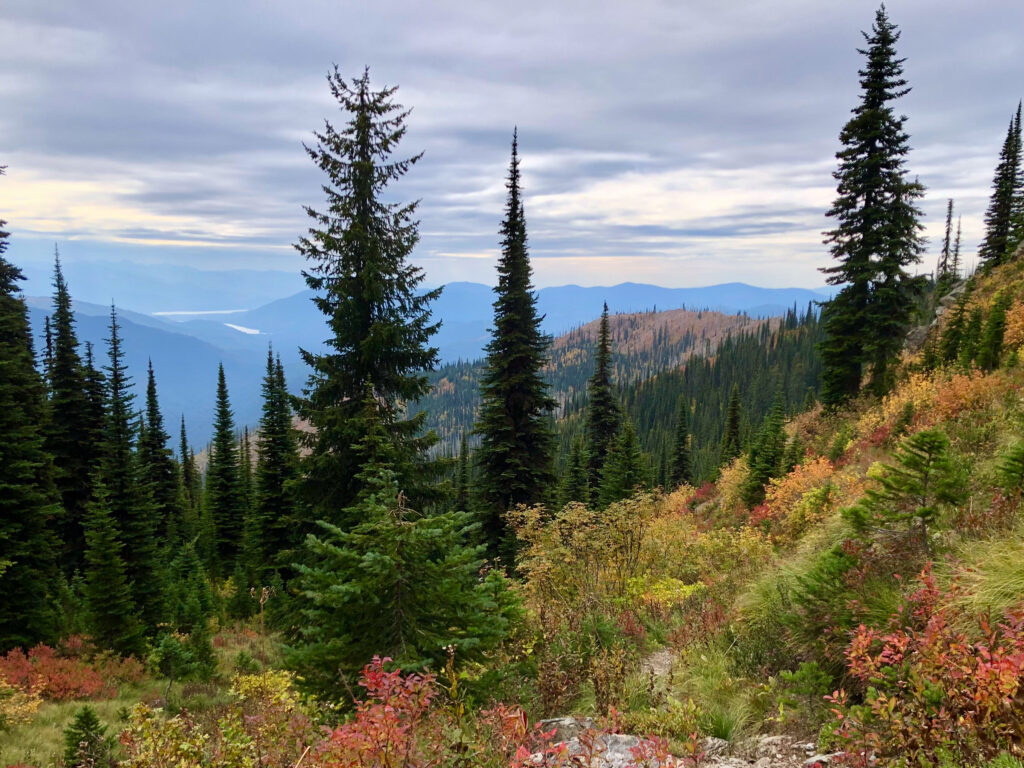By Olivia Dugenet
Cover photo courtesy of Olivia Dugenet
Washington State Parks is promoting a new health treatment. Anyone can get a prescription. In fact, people are encouraged to write themselves prescriptions. Studies suggest this treatment improves sleep, enhances the immune system, lowers blood pressure, and reduces the risk of diabetes and stroke. There is also evidence to suggest it decreases depression, stress, anxiety, and ADHD symptoms while boosting mood, focus, and cognitive performance.
The medicine is nature—free, abundant, and often overlooked by busy people who spend most of their time indoors, staring at screens.
Part of a public health endeavor, Washington State Parks recently adopted a framework called the Parks Rx program—a national campaign to build awareness around nature’s health benefits. Anyone can access the “Write Your Own Nature Prescription” guide at ParkRxAmerica.org, or just grab a pencil and piece of paper. It’s a good idea to use SMART goal principles to make it Specific, Measurable, Achievable, Relevant and Time-bound. It’s also a good idea to link the prescription with activities you enjoy. Where will you go? What will you do there? How long will you do it, and how often?
A prescription for general wellness and disease prevention might look like this: “Read a book at Manito Park for 30 minutes three times per week; walk one mile at Dishman Hills Conservation Area four times a week; snowshoe at Mount Spokane for three hours once a week.” Those hoping to address an existing condition or initiate a lifestyle change should always discuss a nature prescription with a doctor. Time in nature does not replace regular medical treatments.

The Spokane Public Library offers free “Check Out Washington” backpacks containing a Discover Pass and helpful guides. The City of Spokane and Spokane County websites both offer park-finder tools to help people explore.
It’s difficult to predict exactly what restorative and preventive benefits an individual may experience with increased access to green spaces. Some changes can’t be immediately detected. For example, research conducted by Dr. Qing Li shows that time spent in nature increases the body’s production of natural killer cells—key immune cells that fight cancer and viruses.
In the same report, Li points out that trees release volatile organic substances—invisible vapors called phytoncides—that reduce stress hormones when breathed by humans. As stress is linked to conditions like heart disease, depression, and high blood pressure, it’s no stretch to imagine that just breathing deeply in a forested area can have potent impacts on physical and emotional wellness. A self-administered prescription to walk daily along a tree-lined street could benefit health.
SpoCanopy, an urban forestry project operated jointly by the City of Spokane and The Lands Council, plants trees in urban and low-income neighborhoods with lower-than-average tree canopy coverage to ensure every person in every neighborhood in Spokane has access to trees and green space.

The modern concept of prescribing nature as a form of medicine originated in Japan in the 1980s. The practice—called shinrin-yoku (forest bathing)—responded to a phenomenon researchers called “technostress,” or unhealthy behavior around technology.
As technology has proliferated over the last several decades, “technostress” has grown in scope and intensity. Today, according to Dr. Li, it “can arise from all manner of everyday usage, like checking your phone constantly, compulsively sharing updates and feeling that you need to be continually connected. Symptoms may include anxiety, headaches, depression, mental fatigue, eye and neck strain to insomnia, frustration, irritability and loss of temper.”
A nature prescription involves leaving the phone at home, in the car, or tucked into a bag. A commitment to unplugging for a few minutes in a natural space multiple times each week could be a key element to whatever healing any of us is seeking.
Olivia Dugenet is a Spokane writer and frequent “Out There Outdoors” contributor.













